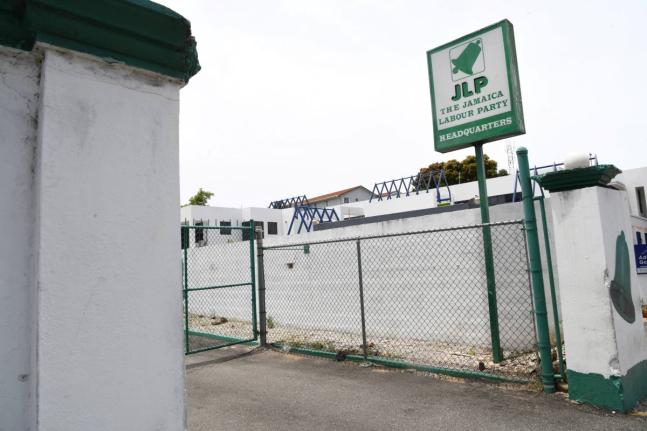Editorial | JLP, Cemex must explain
Loading article...

The Jamaica Labour Party (JLP) and the global cement manufacturer, Cemex, are obliged to say why the company reported a more than US$200,000 payment to the ruling party then expunged the expenditure in an amended filing to the US Securities Exchange Commission (SEC).
The absence of a credible explanation will not only cause speculation about the truth of the issue, but leave more than a whiff of the Trafigura Affair that dogged the opposition People’s National Party (PNP) for the better part of two decades.
This matter should also put firmly on the agenda the urgent need to update the political party/election campaign finance law so as to bring greater transparency to how parties and elections are funded.
As this newspaper reported on Sunday, in a September 29 disclosure to the SEC, the oversight body for publicly-listed companies in the US, Cemex – whose holdings include Caribbean Cement Company (CCC) in Jamaica – listed among its “Payment to Governments” a “fee” of US$201,500 to the JLP.
Cemex did not explain the basis for this ‘fee’. However, in an October 17 updated filing to the SEC (which coincidentally was after The Gleaner had asked the JLP, CCC and Cemex for explanations), the company excised the reported payment to the ruling party, saying that the amended document was to “revise the disclosure for the amount of fees paid to certain foreign governments”.
Notably, converted to the Jamaican dollars (approximately J$32.6 million) the money Cemex initially reported as a payment to the JLP would be roughly equivalent to the five per cent of a political party’s total expenditure (J$650 million) that a single donor is allowed to make to a party’s election campaign. All donations of J$250,000 and over are to be reported to the Electoral Commission of Jamaica (ECJ). The public, however, doesn’t have access to this information.
COVERED PAYMENTS
Significantly, Cemex in its initial filing, and in the updated version, said the fees covered payments to government entities made in 2024. In that case, coming ahead of the start of the official campaign period for the September 3 general election (and assuming what was reported as a fee was intended as donation to a political party) neither Cemex nor the JLP would have had to report the donation to the ECJ.
The law, as it is currently structured, covers only donations and contributions to political parties and their candidates during official election campaign periods, which starts either six months before the constitutional end of the life of Parliament, or when the prime minister announces an election, whichever is earlier.
On the other hand, if a donation or contribution, to any party, that met the reporting threshold, was made after March of this year it would have to be filed with the ECJ. Conceivable, a payment traversed to 2025 could show up in later reports.
What is puzzling to this newspaper, though, is how a company of the size and global reach of Cemex – over US$16.4 billion in net sales in 2024 – with its highly trained accounting staff and self-declared sensitivity to governance issues, could make the mistake of telling the SEC of payment to the JLP, when it had made none.
This matter is further complicated by an absence of clarity from Cemex’s Jamaican subsidiary, Caribbean Cement Company.
CLEAR DISTINCTION
CCC suggested that it made contributions to Jamaica’s political parties, but appeared to make a clear distinction between what it does and its parent’s actions.
“While Carib Cement is a subsidiary within the Cemex global network, both companies operate with distinct governance structures and decision-making processes, fully-aligned with local laws and corporate best practices,” Caribbean Cement said.
In other words, don’t ask us about those Cemex filings with the SEC. Indeed, Carib Cement invited reporters to pose their questions directly to Cemex.
There may indeed have been a bungling by the highly-trained and highly-efficient staff at Cemex. But Jamaicans will no doubt see parallels between this issue and the PNP’s Trafigura debacle.
In 2006, the then JLP leader, Bruce Golding, revealed that Trafigura, a Dutch commodities trade, had made transfers totalling J$31 million to bank accounts controlled by PNP officials. Explanations for the transfers ranged from payments for services to contributions to the PNP for its pending annual conference.
At the time Trafigura had a contract to receive and trade crude oil Jamaica received from Nigeria under a bilateral deal. Trafigura got a cut from the trades.
Dutch officials opened an investigation into possible bribery of Jamaican officials, or that Trafigura had broken Dutch laws regarding foreign political contributions. The issue dragged on for nearly two decades without a clear resolution.
What is obvious from the current situation, is the need for what this newspaper has long advocated for: full and transparent financial reporting by political parties, including the naming of their donors.
That should be the law.